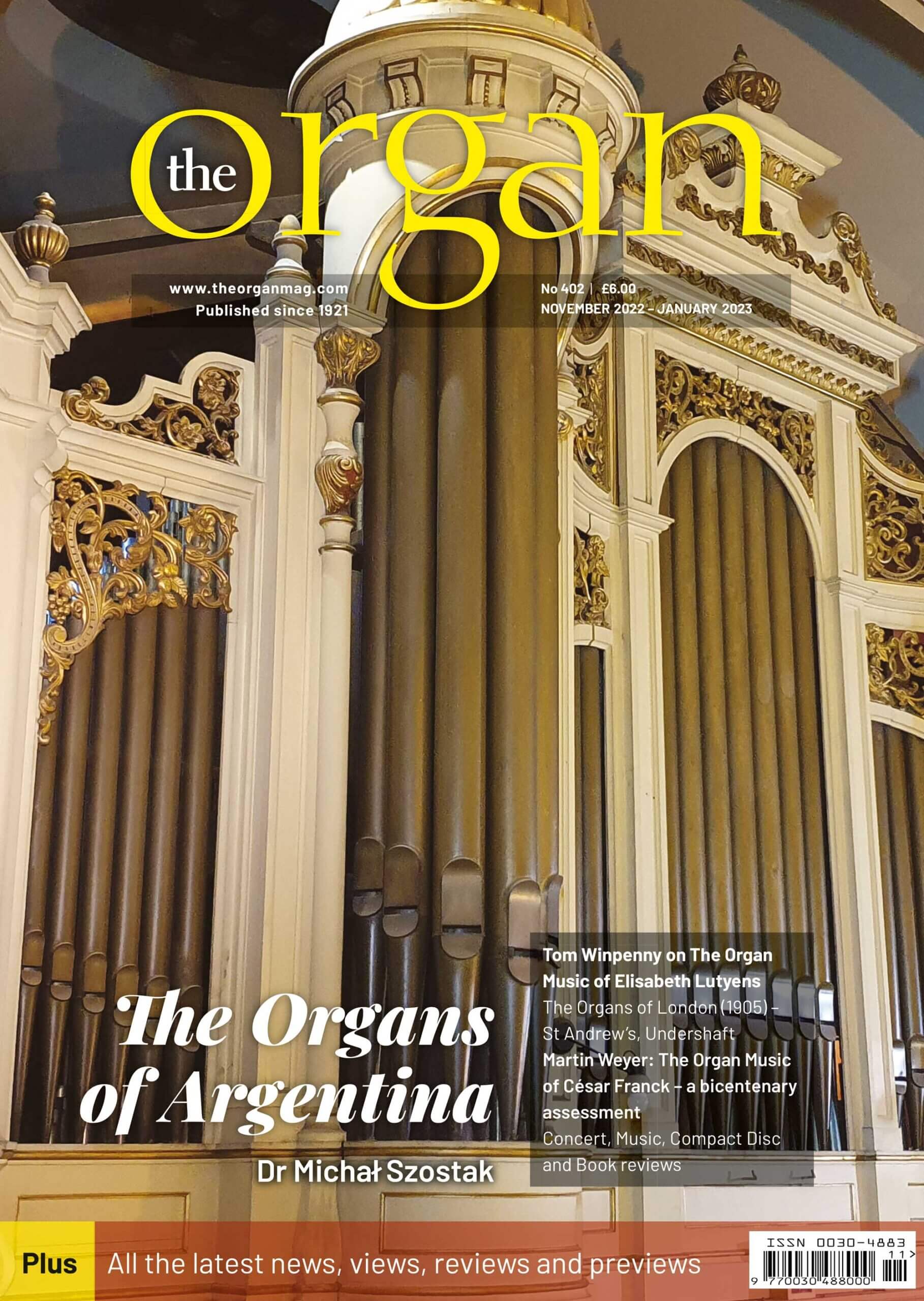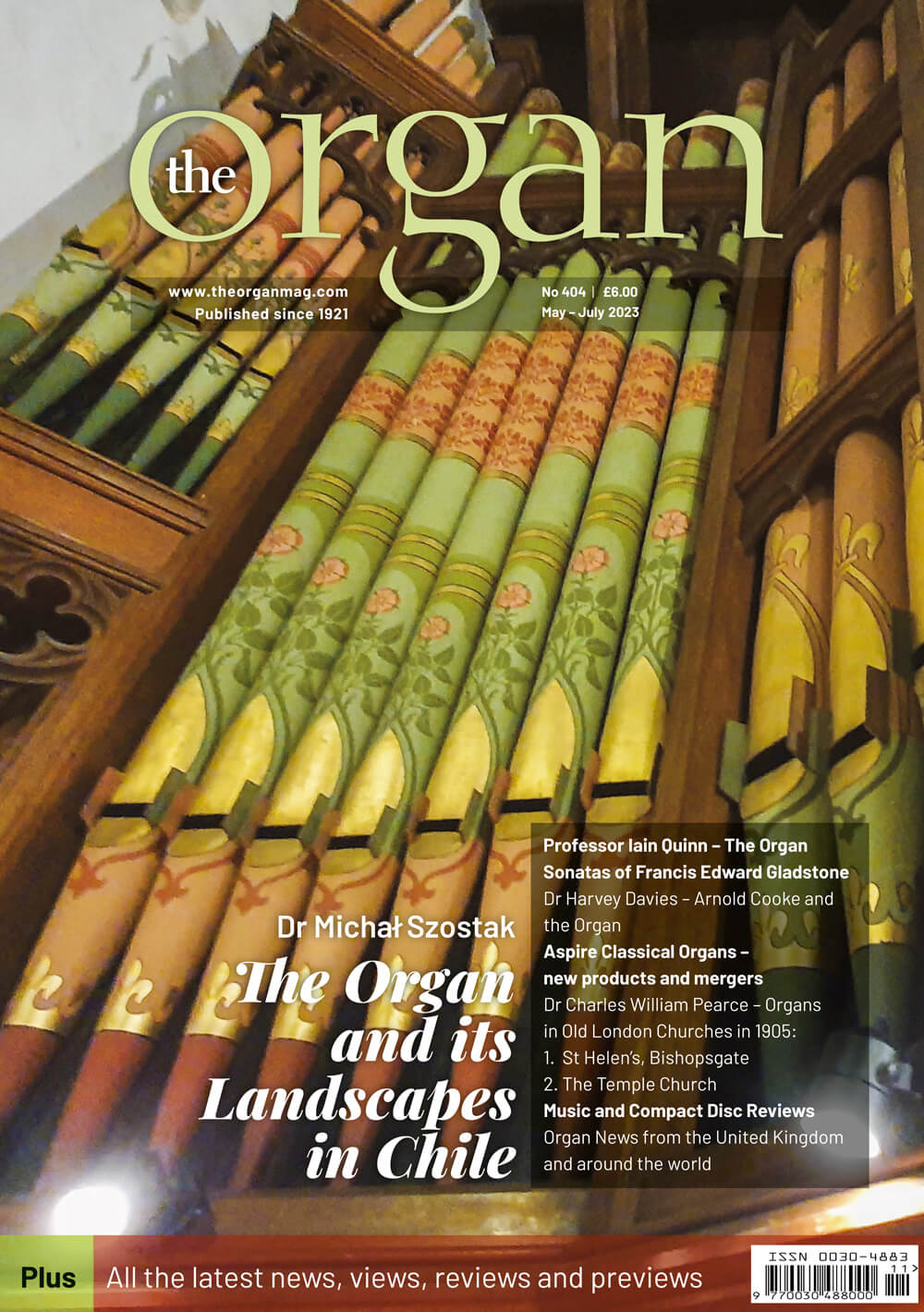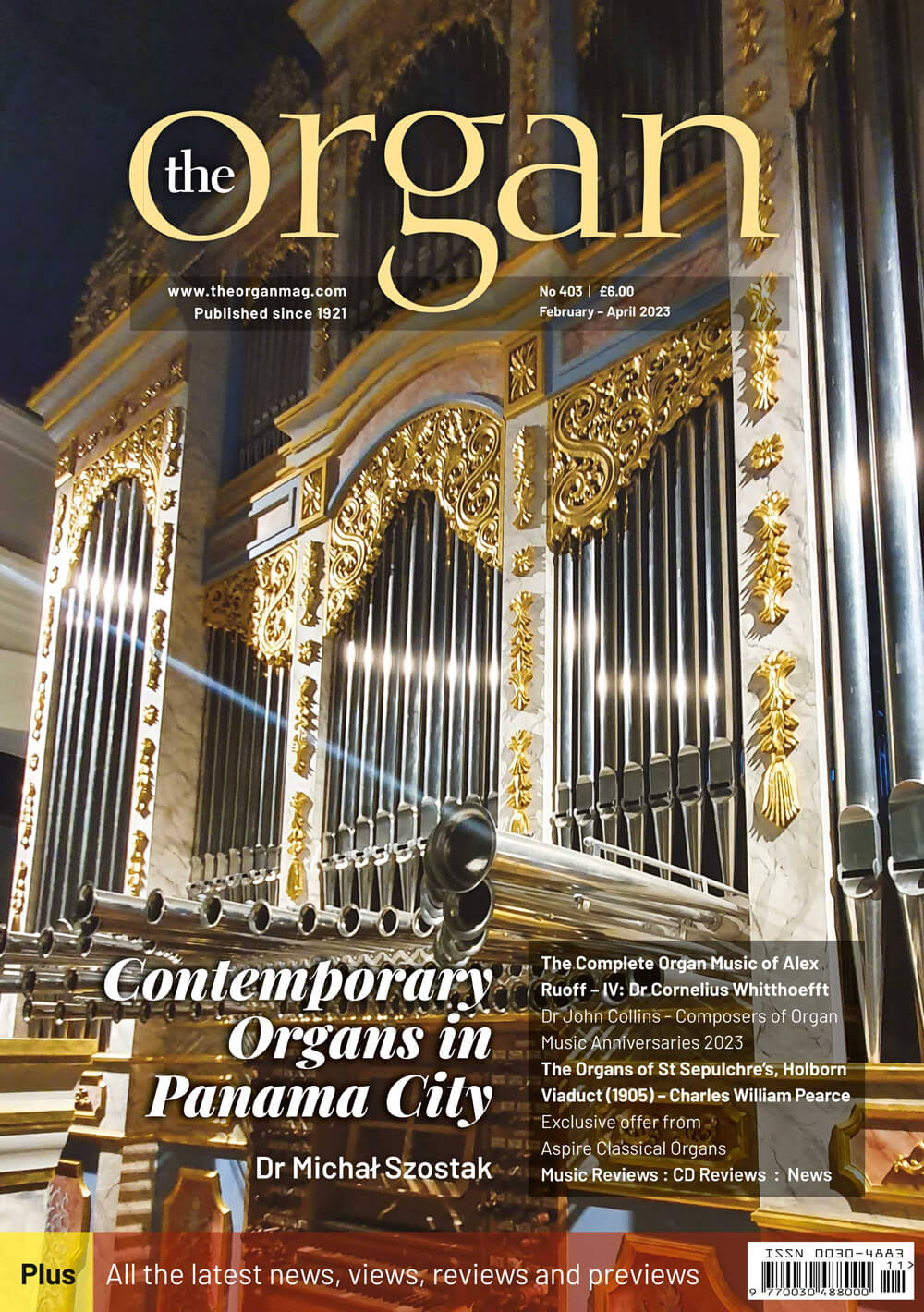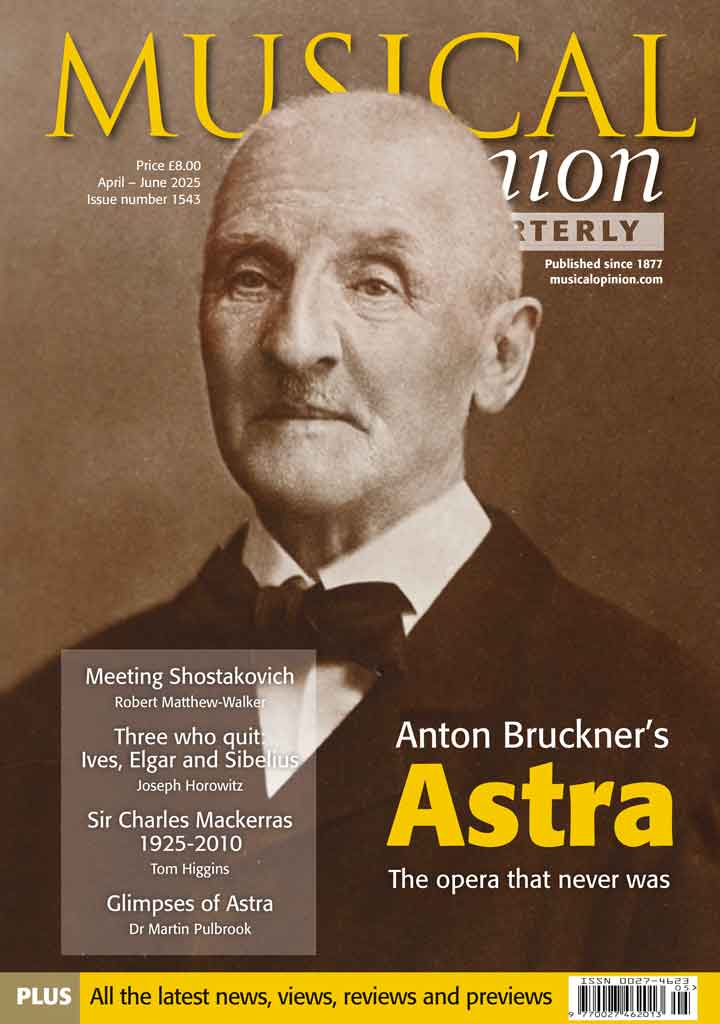

Current Issue
Reviews
Munich Bavarian State Opera – Donizetti: The Daughter of the Regiment
The last new production of Donizetti‘s opéra-comique La Fille du régiment at the Bavarian State Opera was in German (as Die Regimentstochter) and dates from September of 1935. The nearly 90-year gap is at least partly due to a general rejection in Germany of anything...
Handel: Jephtha: Royal Opera House, London
‘That whatsoever cometh forth of the doors of my house to meet me, when I return in peace from the children of Ammon, shall surely be the Lord’s, and I will offer it up for a burnt offering.’ Such is the vow of Jephtha, the eponymous hero of Handel’s final Oratorio....
Guest Editorial
Britten: Death in Venice
Marx in London!
Scottish Opera Glasgow – Jonathan Dove: Marx in London! This opera was first heard at the Stadttheater Bonn in 2018 in a staging by Jürgen R. Weber in commemoration of Marx’s 200th anniversary. Weber’s production is a satirical account of one day from Marx’s life in...
The Ring Cycle in Sofia, Bulgaria
Parsifal Parsifal was the sixth Wagner opera to be produced at the Sofia Opera by Plamen Kartaloff in his mission to develop a Wagnerian tradition in Bulgaria. First staged in 2015, the preparation for the opera was assisted by Richard Trimborn. Kartaloff believes...
ENO – Rhinegold
Wotan may be a god, but he never strikes me as the brightest button in the box. His decision to give away Freia as payment to the giants for Valhalla, his castle in the sky, has clearly not been thought through. So too is the Arts Council’s decision to uproot English...
Bari – Teatro Petruzzelli: La Traviata
Is it possible the there is one Musical Opinion reader who has never seen La Traviata? And maybe is it also possible this reader has not formed an opinion about the central character before even seeing the opera? And maybe this reader also has a great degree of...
Opera North: Rigoletto
If you stroll around the ever-expanding Salford Quays complex these days, you will see a very different Media City to the one when the Lowry Theatre first opened more than 20 years ago. BBC and ITV studios, hotels, bars, restaurants, apartment blocks, trams and an...
New Recital Series at Leighton House from Lisa Peacock Concert Management
Lisa Peacock Concert Management Ltd announces the greatly anticipated appearance in London of Juan Pérez Floristán, Gold Medallist of the Arthur Rubinstein International Piano Master Competition 2021 in music by Chopin, Liszt, Wagner/Liszt and Beethoven on Saturday...
Explore By Topic
Berlin Staatsoper unter den Linden – Wagner: Tannhäuser
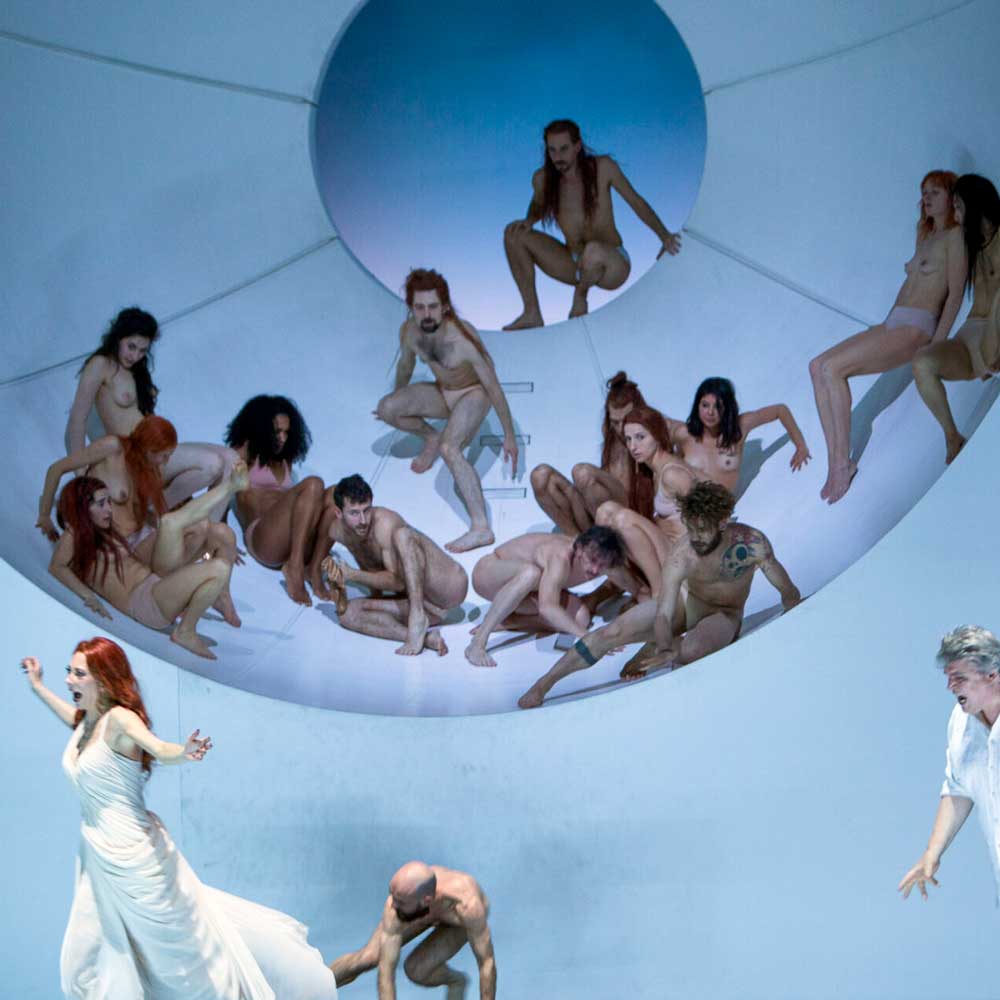
What happens when an opera house asks a ballet dancer and choreographer with her own dance company to produce an opera? There is a lot of ballet where normally there is not, and there is hardly any Personenregie. Tannhäuser has a place for ballet, normally given to a choreographer, and this is in the first scene at the Venusberg. After that, it is all to the characters to carry the dramaturgical weight. But this is Germany, where all sort of things happen to opera, some very good, and some predictably not so good, going to awful. A pity, because Sasha Waltz seems to have carved a nice niche for herself and her Sasha Waltz & Guests. From my seat, she did not have the necessary ingredients to deal with this complex work. If direction means moving singers in this or that direction she did a good job, but as we all know opera characters – and specifically Wagner characters – have deep meanings, their interactions also have meaning, and they must also be shown even if they are not singing. To show emotions of some balletic sort being enacted by a talented group of dancers does not do the job; in fact, it interferes with the action. If the public wants ballet then the ballet offers marvellous shows – if instead one wants opera, it should be left to the characters on stage.
There was this awful scene when Wolfram is left alone after Elisabeth’s prayer and as he is singing a group of dancers appeared from one side making all sort of expressive gestures…. the result was a mess because it took away drama, and left the scene, one of the most impacting in the whole opera, disjointed and separated, before and after the ballet. One felt like shouting leave him alone! Add to this a complete lack of understanding of what individual characterisations mean (Personenregie) and this was a production which worked for photographers with lots of opportunities to take photos which on paper look good but Tannhäuser does not belong to a picture book. Clear? I wonder how the process of choosing opera producers works here in Germany. I wonder if an opera producer would be invited to produce a ballet….? The sets were also designed by Waltz and Pia Maier Schriever, showing a large circular opening centre stage for the Venusberg scene, and then mostly a black set, very dark indeed. So we were left with the singing and all attention was concentrated on Lisa Davidsen who, since being discovered as the new Flagstad, cannot put a foot wrong. I have heard her many times and the voice is stupendous and the way she stands and delivers is amazing. However Elisabeth is a tricky role: stand and deliver is not the main purpose of this character. I detected a certain degree of shrillness in the voice as she gave almost full power, also a degree of saturation and lack of colour which means she was not always in full control and needed to push. I do remember a well known singer who used to teach sporadically and when this sort of problem arose the advice was to sing some Mozart. Birgit Nilsson used to sing Donna Ana (I saw her in Buenos Aires) at the beginning of a sensational career, and maybe it would also benefit Davidsen. It is still a glorious voice, no doubt whatsoever, and what we all wish is that it progresses and remains glorious. So far, she was never a great actress, and I am not sure why there is not more effort put into this department, since going from acceptable to good should not be too hard. Vincent Wolfsteiner sang the title role. There was little physical attraction between a statuesque Elisabeth and a rather pear shaped tenor. The voice is a mix of throaty attractive and clear with occasional lack of support, leaving the listener rather worried as to whether he would be able to deal with the final demanding scene. But dealt with it he did and quite brilliantly, so maybe Wagner was right demanding a voice at the edge. Andrè Schuen sang a cool Wolfram, slightly detached but sympathetic, the voice secure, clear and well articulated. Siyabaonga Maqungo sang Walther with an impeccable line and Mozartian timbre and last, but not least, Marina Prudenskaya presented a sexy, svelte, demolishing Venus, with an expressive voice and a secure and beautiful top register. A very fine seductive Venus in this mixed version with bits of Paris and mostly Dresden. If I would have to write about Sebastian Weigle’s conducting having only heard the overture I would say it was simply awful for such an experienced conductor, the orchestral balance was all-over-the-place and at times it was too heavily accentuated; so much so that it distorted the equilibrium. But the opera is long and he kept a rapid pulse going and all settled down very well, everything falling into place and as usual, the outstanding Staatskapelle giving the work silky strings, roaring metals and superb woodwind. What an orchestra!
Eduardo Benarroch

What happens when an opera house asks a ballet dancer and choreographer with her own dance company to produce an opera?

